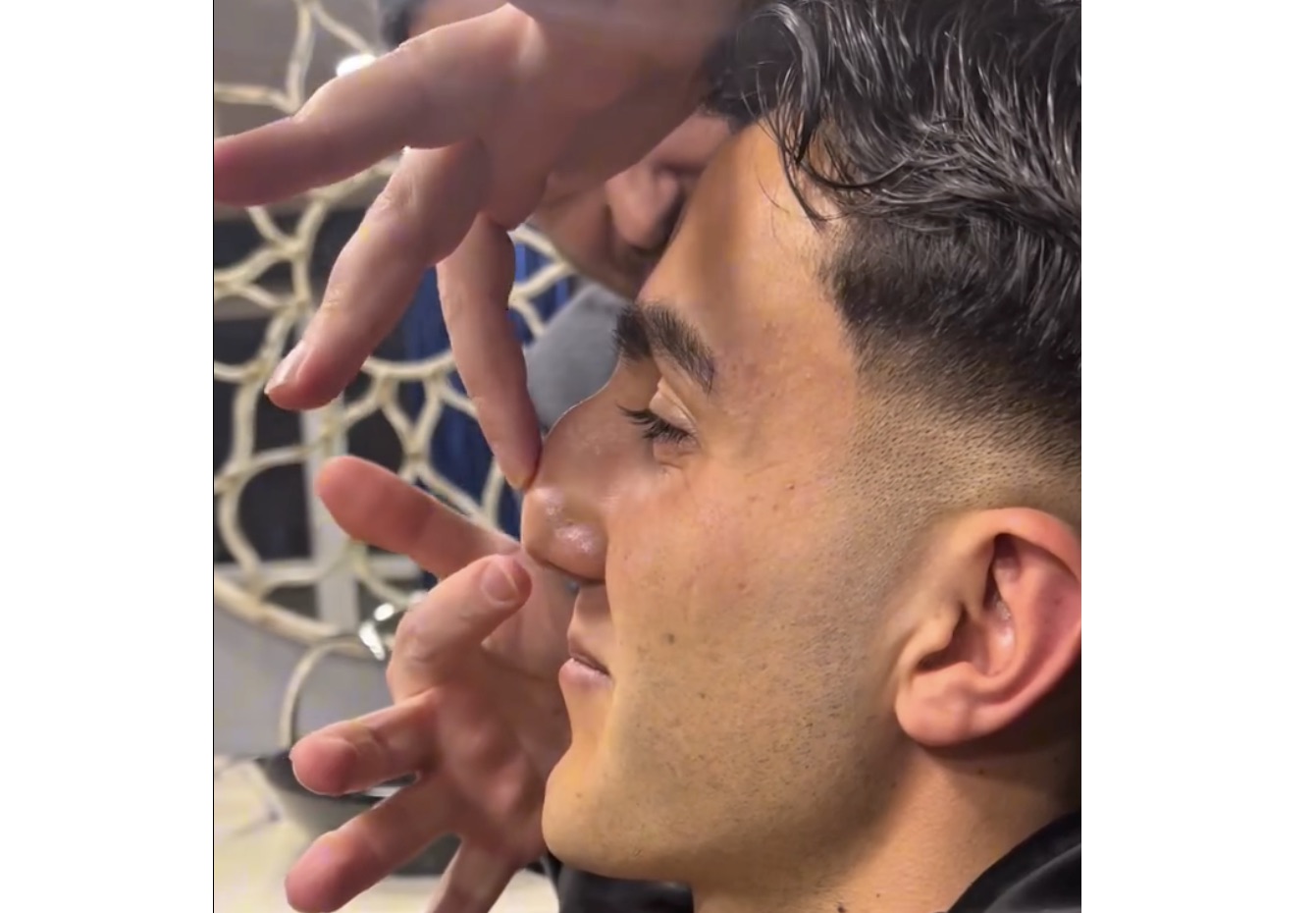Growing up, Jacob always felt different—not because of how he acted, but because of how he looked. His nose was something he couldn’t escape from, a sharp reminder that he didn’t fit in the way he wanted. It wasn’t just “not straight” — it was crooked, oddly shaped, and prominent. Enough that it became a subject of conversation even if no one ever spoke about it directly.
When he was younger, the kids at school would stare, their glances quick but telling. They didn’t say it aloud, but he could see the way they hesitated when they spoke to him, the awkward smiles that followed, the way they quickly moved on to a different topic. It wasn’t just the way he looked—it was the feeling that he wasn’t allowed to be just like everyone else, that his difference wasn’t just a physical one but one that lingered in the air around him.
By the time he reached his teenage years, Jacob was a pro at hiding his discomfort. He started wearing his hair longer, tried to angle his face in ways that would minimize the obviousness of his nose. But even with the efforts, he couldn’t escape it. He felt like he had to apologize for his appearance before anyone else even had the chance to notice.
“Just a nose,” he would tell himself, day after day, trying to convince himself that it wasn’t that important. But each photo, every group picture with friends, every candid shot, reminded him of what he couldn’t change. Every mirror was a reminder of the parts of him he wished he could erase. It felt like a constant battle between accepting himself and trying to become someone else.
It wasn’t until he moved to college that he finally started confronting the one thing he had always tried to run from. It was in his first semester, in a photography class, when he first saw himself through someone else’s eyes. He was asked to sit for a portrait, and as the photographer clicked away, Jacob caught a glimpse of himself in the camera’s reflection. It was a moment of raw truth, yet something in it shifted inside him. He wasn’t seeing the crooked nose anymore. He saw his eyes, the way the light danced on his skin, and the smile that was uniquely his. He saw his story written in the lines of his face, the places that made him who he was.
Over time, Jacob began to embrace what he had spent so long trying to hide. He learned that his imperfections were just as much a part of him as anything else—no longer a flaw to be fixed, but a feature that made him unique. He started to walk into rooms with his head held higher, the mirror no longer a place of judgment, but a reflection of his strength.
Years later, when he looked back at those childhood photos—the ones that once made him cringe—he smiled. His nose no longer seemed like a symbol of rejection but of resilience. It had taken years to love the face that was always in the mirror, but once he did, it felt like he had finally found peace with himself.
